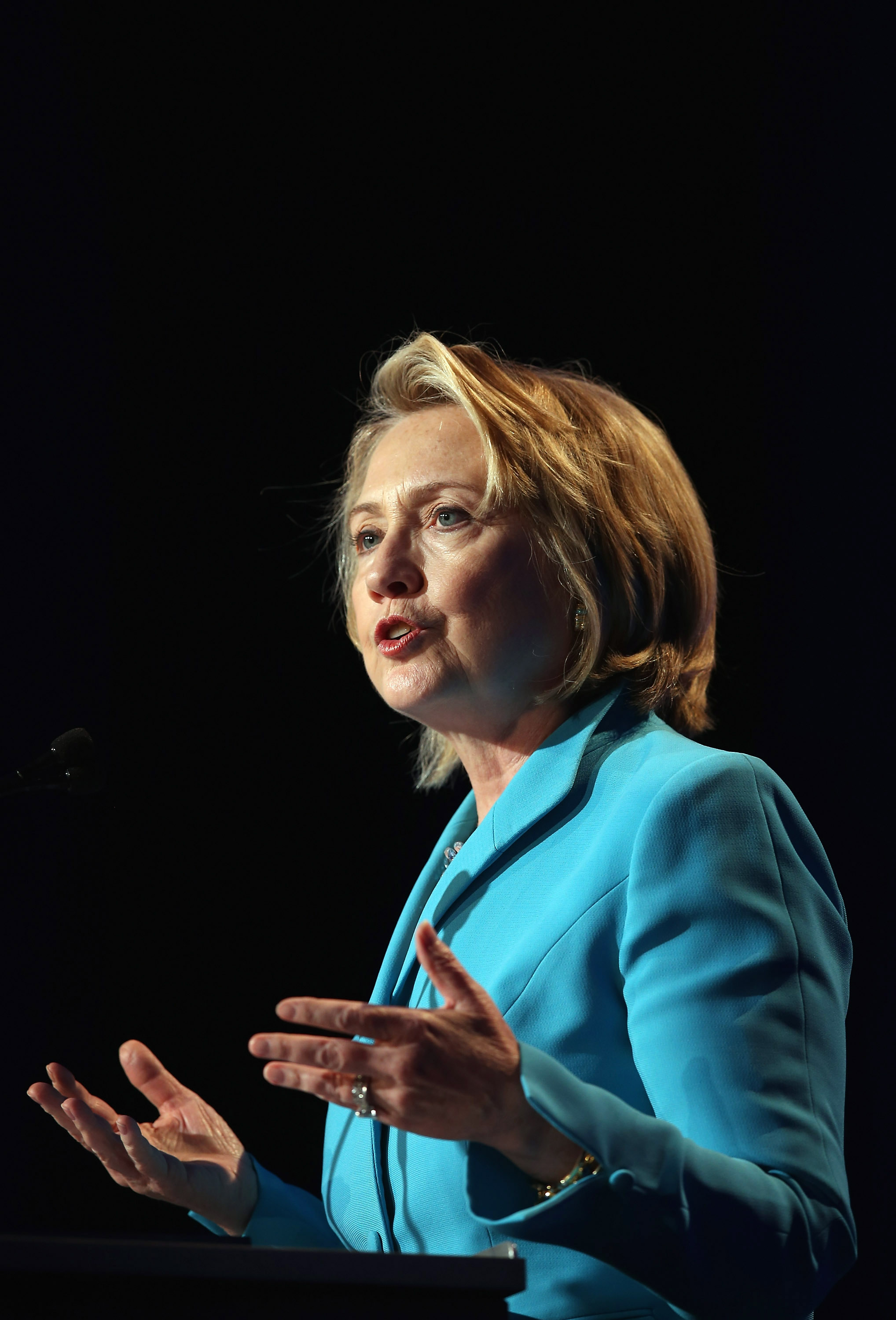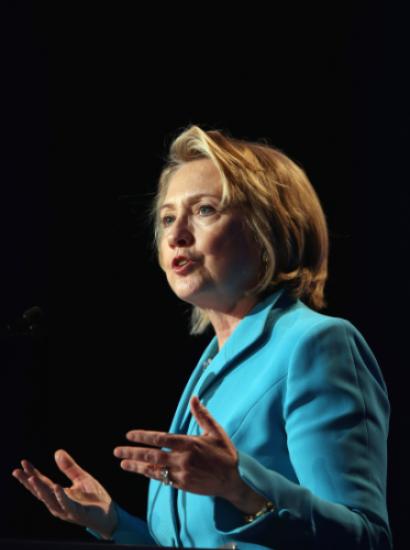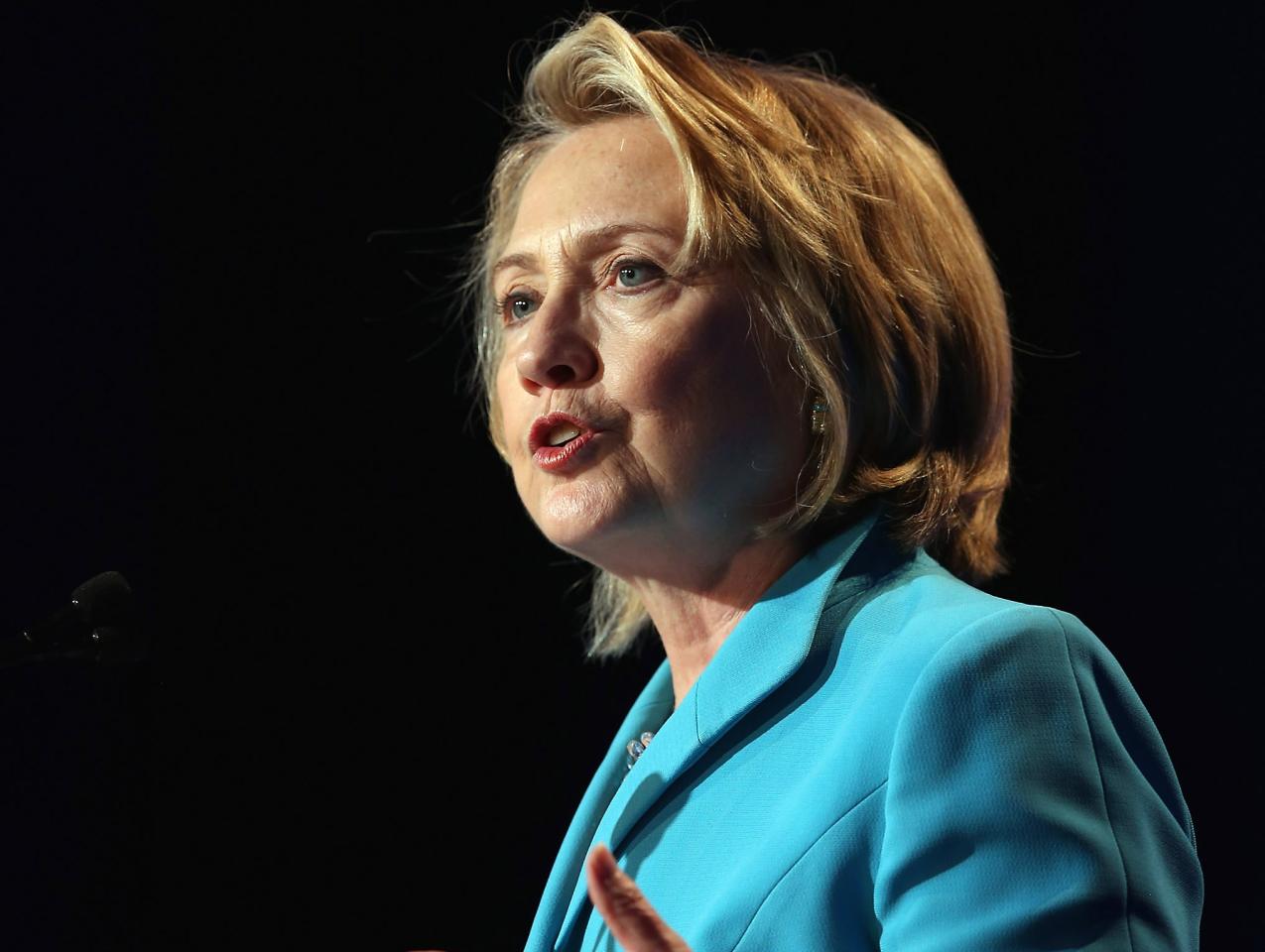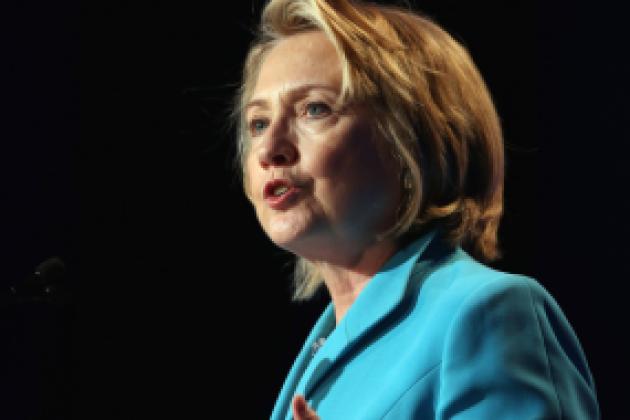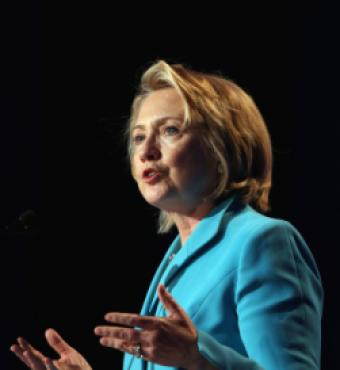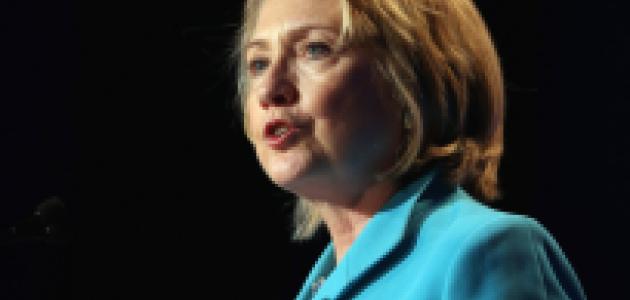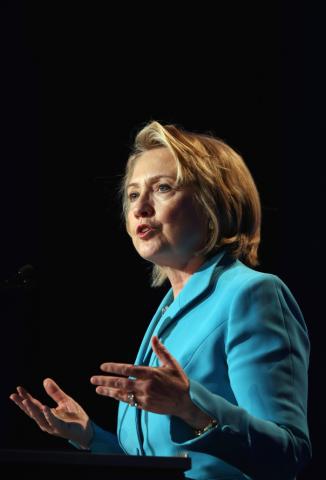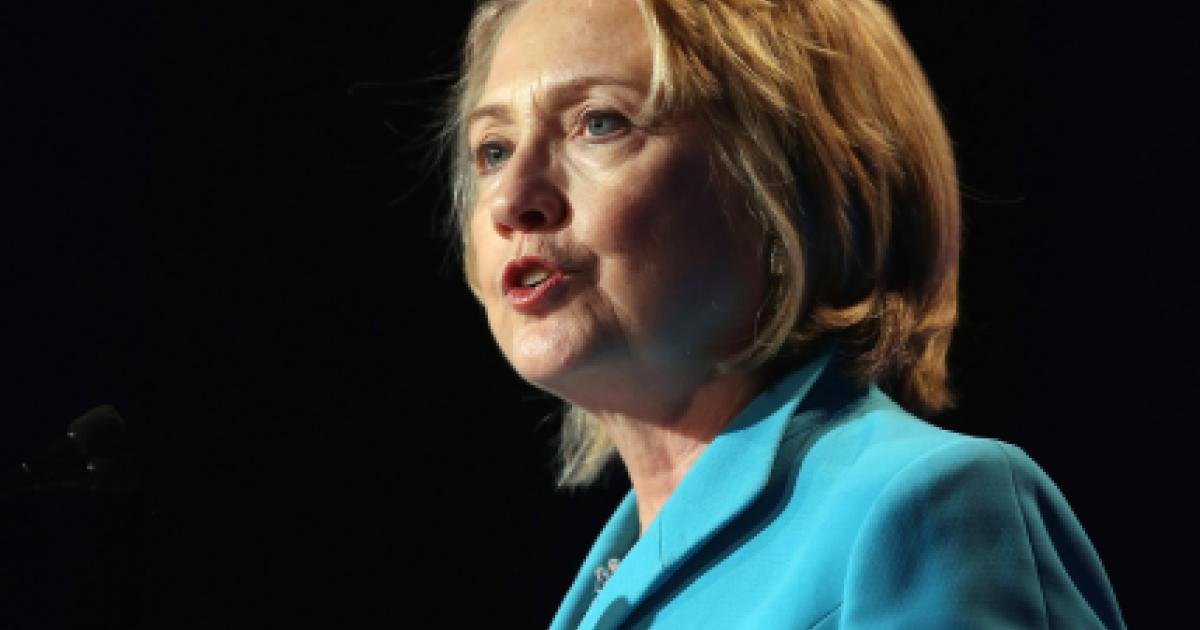- Politics, Institutions, and Public Opinion
- Campaigns & Elections
Hillary Clinton has begun distancing herself from President Barack Obama, suggesting that she would do more to woo Republicans and take a more assertive stance toward global crises, while sounding more downbeat than her former boss about the U.S. economic recovery.
People are "really, really nervous" about their future, Mrs. Clinton said at an event in Colorado last week that included hints of her emerging strategy to convey that she would be more effective in the pursuit of Democratic policy goals than Mr. Obama has been during his time in office.
"They don't think the economy has recovered in a way that has helped them or their families," Mrs. Clinton said. In contrast, Mr. Obama sounded almost cheery after Thursday's jobs report, saying the country could make even more progress if Congress were willing to "set politics aside, at least occasionally."
Mrs. Clinton hasn't repudiated Mr. Obama, who made her secretary of state in his first term, and comments aimed at highlighting her differences with Mr. Obama are often implied rather than stated bluntly.
But in tone and substance, the presumed presidential candidate has made clear in recent public appearances that she wouldn't be running for a de facto third Obama term in the White House. The strategy could help Mrs. Clinton tackle one of her biggest challenges if she decides to run: how to separate herself from Mr. Obama without alienating Democrats and Obama supporters.
The balancing act likely would be even trickier for Vice President Joe Biden, another potential Democratic candidate in 2016. Mr. Biden, closely tied to the White House and its foreign and domestic policies, could find it enormously difficult to chart an independent path if he launches a campaign.
All candidates from the same party that holds the White House face a tricky choice about whether to embrace the incumbent.
In 2000, then-Vice President Al Gore was careful about positioning himself as a continuation of Democrat Bill Clinton's presidency, since some voters were disillusioned with Mr. Clinton in the wake of the Monica Lewinsky scandal. In 1988, though, Republican George H.W. Bush aligned himself directly with the popular Ronald Reagan. Mr. Gore lost, while Mr. Bush won.
Bill Whalen, a research fellow at the Hoover Institution and former chief speech writer for Pete Wilson when the Republican was California's governor, suggested that Mrs. Clinton's distancing strategy at least partly reflects Mr. Obama's lackluster popularity.
"If the president had 60% approval ratings, she would be hitching her wagon to him," Mr. Whalen said. "At 40%, he's an anchor." Still, given the delicate spot Mrs. Clinton is in, "to the extent that she throws him under the bus, she has to run over him at a very slow speed."
A senior Obama administration official said the White House is supportive of Mrs. Clinton. Mr. Obama's team understands there will be moments when Mrs. Clinton and the White House aren't in lock step, the official said. Mrs. Clinton's office didn't respond to a request for comment.
Mrs. Clinton gave a gentle account of their policy differences in her new book, "Hard Choices," though she wrote that she would have armed moderate Syrian rebels at a much earlier point in the country's bloody civil war.
In another contrast, Mrs. Clinton has said U.S. presidents must never stop courting Congress. Mr. Obama has questioned whether such efforts make any difference. Mrs. Clinton expressed skepticism of candidates with "beautiful vision," while Mr. Obama still hammers on his 2008 campaign mantra: "Hope."
"I mean, some people can paint a beautiful vision," she said at a CNN event last month. "And, thankfully, we can all learn from that. But then, can you, with the tenacity, the persistence, the getting-knocked down/getting-back-up resilience, can you lead us there?"
The contrast echoes one during the 2008 presidential campaign, when she lost the Democratic nomination to Mr. Obama. In January 2008, Mrs. Clinton said President Lyndon B. Johnson translated Martin Luther King Jr.'s inspiring civil-rights vision into reality by winning passage of the Civil Rights Act.
Mrs. Clinton recently made another reference to Mr. Johnson, known as a supreme legislative tactician. She cited the Broadway play, "All the Way," which tells the story of his efforts to pass the law. "If you're going to get something done, you have to persuade," she said at the Colorado event.
As she mulls a presidential bid, Mrs. Clinton also has suggested that her husband's administration offers a more viable model for governing in polarized times than Mr. Obama's.
Partisanship in the 1990s was as grave as it is today, she suggested at the Colorado event. Nevertheless, Mr. Clinton made inroads with hostile Republican lawmakers, Mrs. Clinton said.
"My husband had some really serious problems with the Congress when he was in office," she said. "They shut down the government twice. They impeached him once. So it was not the most pleasant of atmospheres. But I will say this: Bill never stopped reaching out to them."
Building those relationships on Capitol Hill "is something there is no rest from," she added.
Mrs. Clinton said Mr. Obama has "worked so hard and reached out so often, and it gets discouraging because you don't feel like you're getting much back." She added: "I don't think you can ever stop. And I think that's part of whoever the next president is just has to be ready to do."
While at the State Department, she found money in the budget to offer visiting diplomats tea, cookies and coffee in hopes of forging personal ties, she added in her remarks in Colorado.
Deep into his second term, Mr. Obama doesn't seem convinced that such overtures work. "I hear folks saying, 'Oh, you know, if you just play golf with [House Speaker] John Boehner more and we're just trying harder to be more bipartisan, then we'd get more stuff done,' " Mr. Obama said at a campaign event in May. "That's not the problem."







